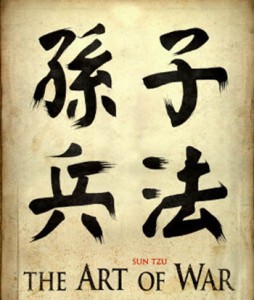The Art of War
 At long last, I managed to take the time of Sun Tzu‘s The Art of War, arguably one of the most famous works to have ever been written. From the hundreds of available translations, I ended up reading the version available freely through Project Gutenberg, translated back in 1910 by Lionel Giles, and although the language is not always the most modern, I had no issues with the translation. This version of the book is heavily annotated with interpretations by famous Chinese commentators and anecdotes from 19th century European history relating Sun Tzu’s lessons to practical applications from “recent” history.
At long last, I managed to take the time of Sun Tzu‘s The Art of War, arguably one of the most famous works to have ever been written. From the hundreds of available translations, I ended up reading the version available freely through Project Gutenberg, translated back in 1910 by Lionel Giles, and although the language is not always the most modern, I had no issues with the translation. This version of the book is heavily annotated with interpretations by famous Chinese commentators and anecdotes from 19th century European history relating Sun Tzu’s lessons to practical applications from “recent” history.
Despite its formidable reputation, I have to say that for the most part, the insights in The Art of War are rather mundane and the work’s organization somewhat haphazard (how many times do you need to describe various classifications of ground?). On one hand, it’s remarkable that this level of strategic thinking was taking place as early as the 5th century BC, but on the other, many of the rules and classifications are remarkably rigid. If the central message taken away is, as Gordon Gekko put it, that every battle is won before it’s ever fought, then perhaps this work is of great value, but this message could be learned without reading this work. In the end, it’s very short, and worth reading once, if only for its historical significance, but don’t go in expecting to be amazed.